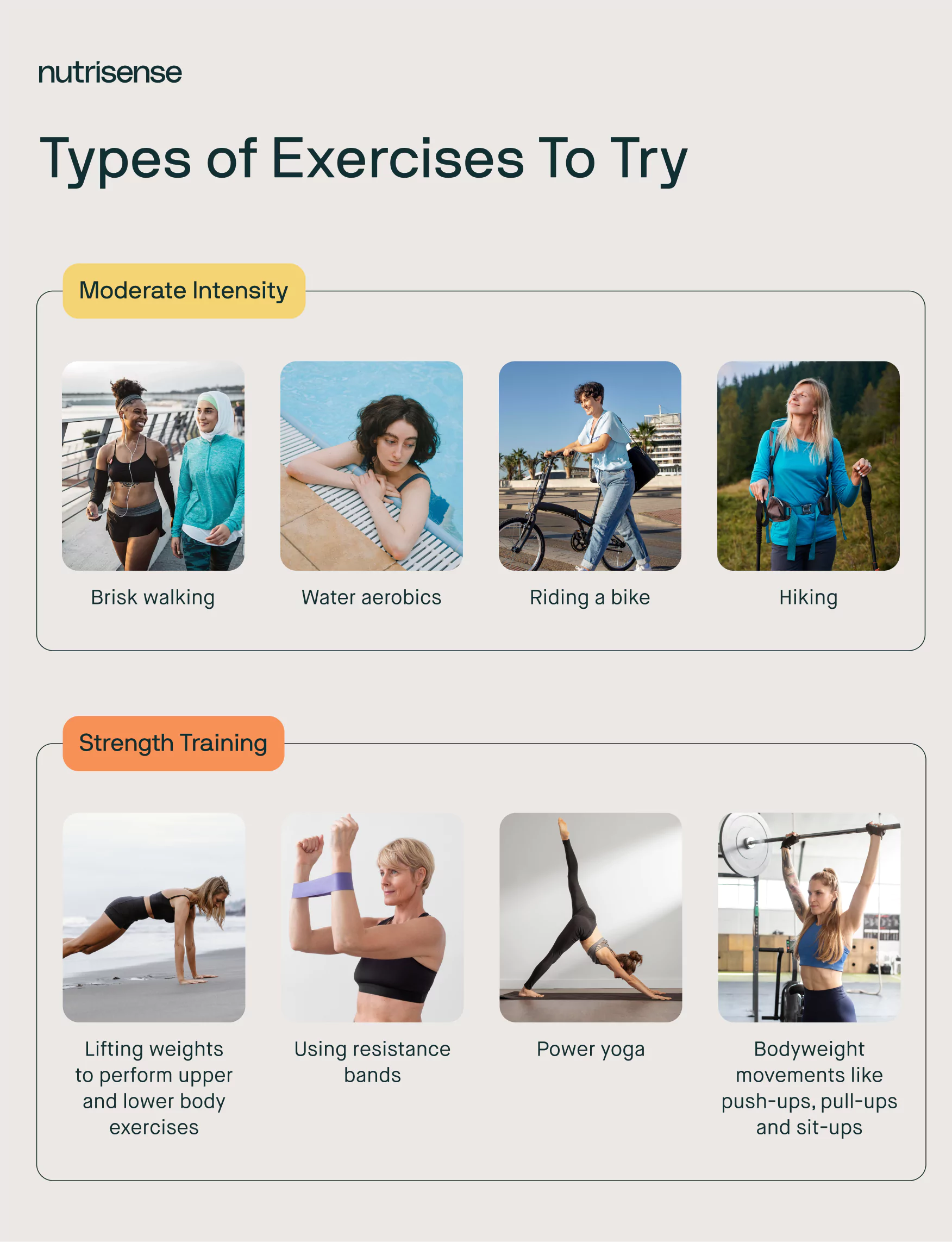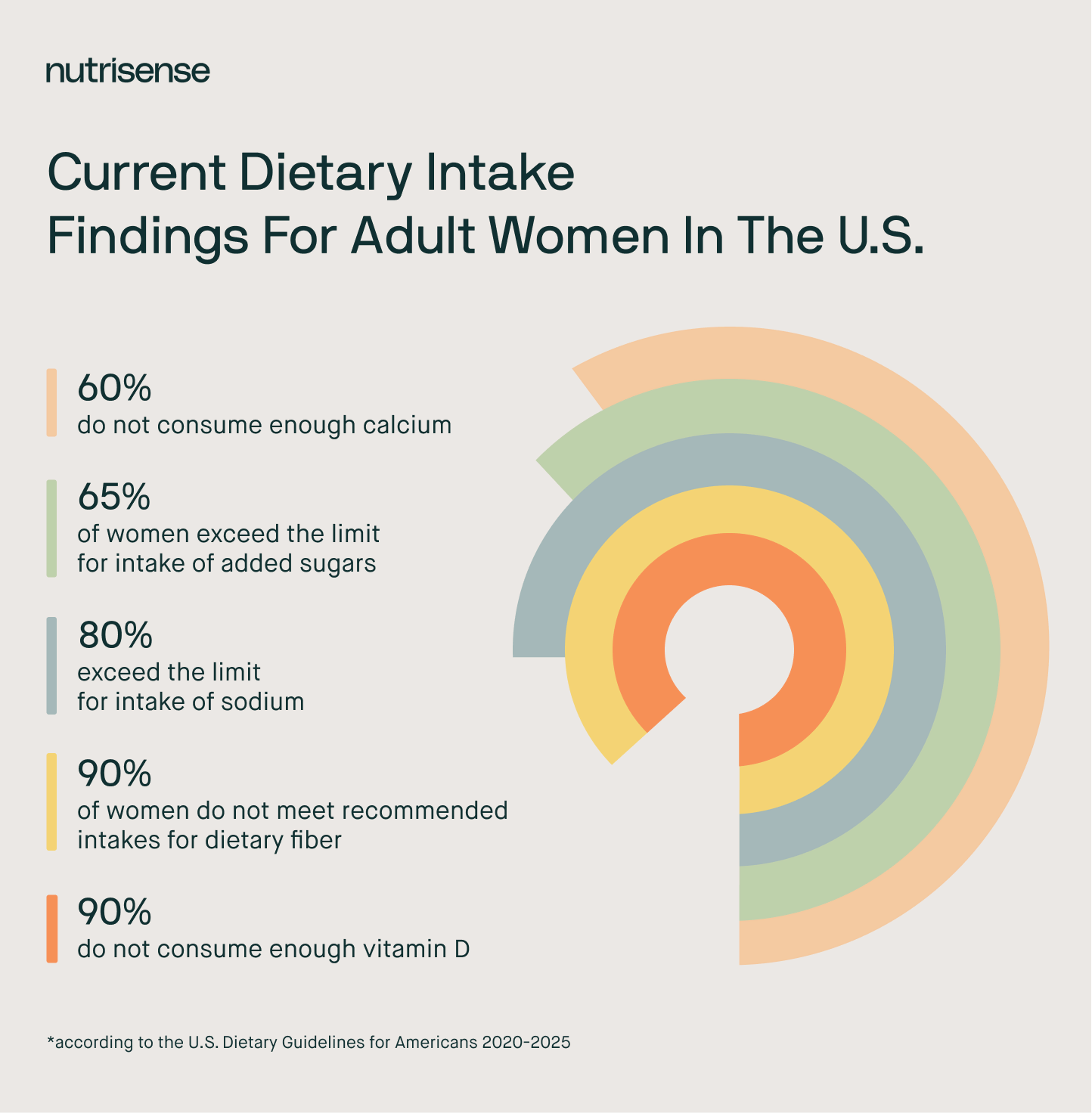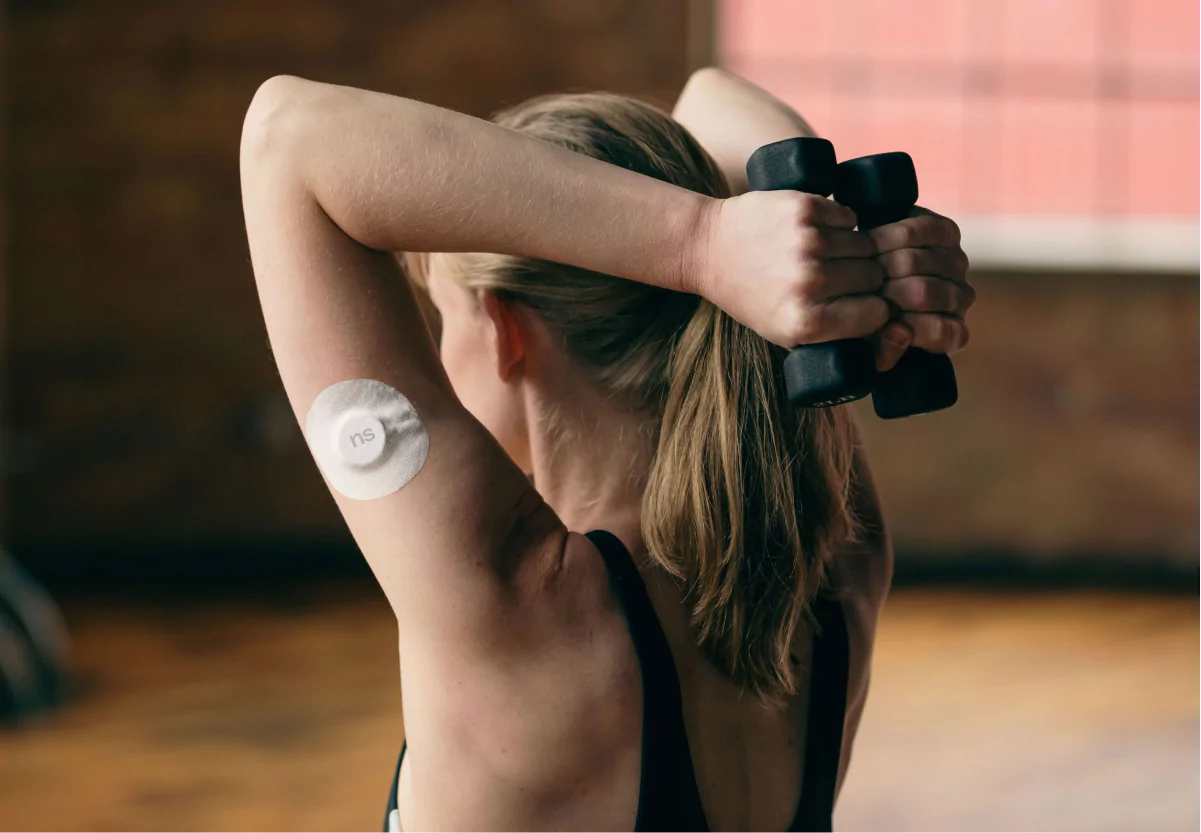8 Women's Health Tips: A Guide to Staying Healthy and Happy

Key Takeaways
Women’s health can be a little more complex than you might think. There are many mental and physical health conditions that disproportionately affect women, including breast cancer, insomnia, osteoarthritis, stroke, depression,and anxiety.
There are also hormonal and reproductive concerns that affect women, such as premenstrual syndrome and menopause. And unfortunately, all of these issues can also affect women differently as they age.
Luckily, there are a few precautionary lifestyle changes you can implement as a woman to help you prioritize your health. Here are eight tips that can help you take control of your health and make steps toward healthy living.
1) Prioritize Healthy Sleep Habits

Getting quality sleep is important for your mental and physical health. There is a wide body of research that links a chronic lack of sleep with an increased risk of many serious health conditions.
Lack of sleep affects psychological wellbeing too: it can cause changes in mood and exacerbate stress. On the flip side, getting enough sleep lowers your risk for these serious health problems, and may help you
- Stay at a healthy weight
- Get sick less often
- Think more clearly
- Make better decisions
- Reduce stress
- Improve your mood
Research shows that sleep problems, such as insomnia and restless leg syndrome, affect more women than men. In fact, more than one in four women in the U.S. experience insomnia, which is the inability to fall asleep and stay asleep.
This may be because women experience hormonal changes during their menstrual cycle, pregnancy, and menopause that can affect how well they sleep.
Tips for Better Sleeping Habits
So, how much sleep do you need? Ideally, healthy adults should be getting somewhere between seven and nine hours of sleep per night.
Here are some tips for improving your sleep:
- Try to get up at the same time every morning
- Do not drink caffeinated drinks late in the day and if that doesn’t help, consider experimenting with fewer of these overall
- Avoid drinking alcohol and smoking cigarettes
- Consider some other areas of diet that may negatively impact sleep, such as how late in the day you might be eating
- Keep your bedroom or sleeping space dark, quiet, and cool when you are trying to sleep
- Avoid screens like laptops, TVs, and phone before bed
2) Get Appropriate Amounts of Physical Activity

Based on 2020 CDC data, only 20.4 percent of women in the US exercised enough. However, too much exercise can sabotage your health goals as well. So it’s all about finding the balance for your unique body.
Getting enough exercise can reduce the risk of conditions such as:
- High blood pressure
- Type 2 diabetes
- Colon cancer
- Heart disease
Appropriate amounts of exercise can help you maintain healthy joints, bones, and muscles, help maintain a healthy body weight, build lean muscle, and reduce body fat. It can even help to reduce anxiety and depression for some people, and may increase life satisfaction and happiness.
Physical activity is anything that gets your body moving, and it doesn’t have to be strenuous to achieve health benefits. The Physical Activity Guidelines for Americans recommend 150 minutes of moderate-intensity physical activities and two days of muscle strengthening activity per week.
How To Boost Your Activity Levels
So what counts as moderate-intensity activity? Moderate-intensity exercise will raise your heart rate and make you break a sweat. Strength training, on the other hand, can include lifting weights, using bands, or even bodyweight movements.
Here are some exercises that you can start out with:

If you have preexisting conditions or injuries, consult a doctor before starting a new exercise regimen.
3) Maintain a Nutritious Diet
The Dietary Guidelines for Americans emphasizes a diet rich in nutrient-dense foods, like vegetables and whole fruits, whole grains, and lean proteins. They also suggest limiting processed foods and foods high in added sugar.
Avoiding or limiting processed foods and foods with added sugars while incorporating more nutrient-dense foods can lower your risk of:
- All-cause mortality
- Cardiovascular disease
- Obesity
- Breast cancer
- Colon and rectum cancer
- Type 2 diabetes
Despite these guidelines, studies that observe women’s nutrition have found that:

Diet is especially important for postmenopausal women, who experience rapid bone remodeling and are at a high risk for bone loss and low bone density. An adequate intake of calcium and vitamin D is particularly important for postmenopausal women.
Lower levels of estrogen after menopause can also raise the risk for heart disease, stroke, osteoporosis, and diabetes.
How to Maintain a Healthy Diet
Eating a balanced diet can help ensure you are maintaining a healthy lifestyle. It’s important to remember that an ideal healthy diet may not look the exact same for everyone. Personalizing your diet for your individual needs is important and working with a professional such as a dietitian can be helpful.
However, according to the Dietary Guidelines, a healthy eating plan should emphasize the following:
1) Eating Enough Fruits And Vegetables
For every meal, aim to fill half your plate with non-starchy veggies. This includes things like dark leafy greens, and other colorful vegetables. Whole fruits can be nutritious and delicious, but because they do contribute some carbohydrates, optimal amounts might vary from person to person.
Choosing fiber-rich whole fruit instead of fruit juice in most cases is ideal.

2) Switch From Refined Grains To Whole Grains
At least half of your grain intake should come from whole grains, like whole-wheat flour, oats, brown rice, and bulgur. Whole grains contain more nutrients and fiber, which can help reduce the risk of chronic diseases like heart disease.
If you’re sensitive to gluten, buckwheat, quinoa, oats, rice, teff, and millet are good gluten-free options.
3) Eat A Variety Of Proteins
Varying your proteins can ensure you get more of the nutrients your body needs. Eat a variety of protein sources, including seafood, low-fat or lean meats, poultry, eggs, legumes, nuts, seeds, and soy products to individual tolerance.
4) Opt For a Variety of Fats and Minimize Trans Fats
Trans fats are a type of fat commonly found in fried foods as well as partially hydrogenated processed oils or shortening products. A diet high in these types of fats may lead to elevated cholesterol levels and can put you at higher risk for heart disease.
Monounsaturated fats, on the other hand, have been associated with lower LDL cholesterol levels and a reduced risk of heart disease and stroke. Foods rich in monounsaturated fats include avocados, olive oil, and some nuts and seeds such as almonds and sesame seeds.
Getting plenty of omega 3 fats in your diet is important as well. Research shows that omega-3s have an anti-inflammatory effect in the body, and that eating a good balance of omega-3 fatty acids and omega-6 fatty acids may reduce inflammation.
Foods rich in omega 3 fatty acids include fatty fish such as:
- Salmon
- Sardines
- Mackerel
Keeping a Healthy Diet During Menopause
Menopause is the natural biological process that marks the end of your menstrual cycle. It is officially diagnosed after you’ve gone 12 months without a period, and it typically occurs in your 40s or 50s.
During menopause, your ovaries produce less estrogen. As mentioned earlier, lower levels of estrogen can raise the risk for chronic diseases like heart disease, stroke, diabetes, and osteoporosis.
Your diet also affects these chronic diseases, so maintaining a healthy diet during menopause is incredibly important. If you’re going through menopause, it’s important to make sure you are consuming adequate amounts of protein, healthy fats, vitamins and minerals.
Some studies have shown that the Mediterranean diet pattern along with other healthy habits may help prevent heart disease in the postmenopausal period.
Talk to your doctor or a registered dietitian about making a healthy eating plan for menopause.
4) Track Your Blood Glucose Levels With a Continuous Glucose Monitor (CGM)

A CGM, or continuous glucose monitor, is a small, minimally-invasive device that sits on your arm and continually tracks your glucose levels in real-time. Keeping your blood sugar levels in a healthy range can help prevent or delay serious health problems, like heart disease, type 2 diabetes, vision loss, and kidney disease.
Blood sugar levels both below and above your target range can have serious health consequences. Monitoring your blood sugar with a CGM is a great way to see whether or not your blood sugar falls within your target range.
The data from a CGM can show you how your blood sugar responds to a variety of lifestyle factors, like diet and exercise and help you make informed decisions and lifestyle changes that can help you meet your health goals.
5) Proactively Manage Your Mental Health
Every year, one in five women in the U.S. experience a mental health problem. Women are more likely than men to experience major depression, PTSD, eating disorders, and anxiety disorders.
These conditions can take an extreme mental toll, but affect physical health as well: mental health problems like depression can actually increase your risk of developing chronic illnesses because they can affect your metabolic health, including heart rate, blood circulation, and stress hormones.
Tips for Self-Care and Supporting Mental Health

There are many techniques you can use to manage mental health problems in your everyday life. The Anxiety and Depression Association of America suggests these tips for managing your mental health at home:
- Practice yoga, listen to music, meditate, or learn relaxation techniques
- Eat healthy, well-balanced meals and limit alcohol and caffeine
- Get good, quality sleep, especially when you’re stressed or anxious
- Exercise daily to feel good and maintain your mental health
- Keep a journal
- Talk to your friends and family when you feel anxious, depressed, or overwhelmed
If you’re struggling with these sorts of mental health issues, consult a healthcare professional or a psychologist you trust for guidance.
6) Take Care of Reproductive Health with Annual Well-Woman Exams

An annual well-woman exam or a wellness visit is an important way to take care of your reproductive health. What happens during your well-woman exam will depend on your age, your sexual history, and your medical history.
These health screenings typically focus on preventative care for women, and include services like:
- Vaccines
- Screening tests (like STD tests or cancer-related tests)
- Physical exams such as a pap smear test
- Education and counseling to help you make informed decisions about your reproductive health
Typically, women should have their first wellness visit around age 13 to 15, where you’ll likely discuss your period and its regularity. At ages 21 to 24, you may start getting Pap smear tests, which look for abnormal cell changes in your cervix.
At ages 25 through 65, you will be advised to take an HPV test every five years, which looks for some types of the virus that may cause cervical cancer. At ages 40 and older, medical professionals recommended getting a mammogram every one to two years.
Scheduling these visits yearly with a doctor, nurse, or gynecologist can help you stay on top of your reproductive health.
7) Uphold Proper Skin Care Practices

Our skin is our largest organ, so it’s important to take care of it. A good skin care routine can help your skin face harsh weather, protect it from UV damage (which can cause skin cancer), reduce acne, and reduce wrinkles.
The huge amount of products available can make it overwhelming for beginners, but skin care routines don’t have to be complicated if you don’t want them to be. Keep it simple by using a gentle cleanser and moisturizer, and make sure to apply sunscreen regularly.
Tips for Stellar Skin Care
Follow these tips for good skin care:
- Wear sunscreen to help protect against skin cancer and premature skin aging.
- Avoid touching your face, as this can transfer dirt, germs, and oil from your hands onto your face.
- Use skin care products that are formulated for your skin type.
8) Hydrate, Hydrate, Hydrate
Our bodies depend on water to survive, so getting enough is crucial for your health. Getting enough water prevents dehydration, which can cause:
- Unclear thinking
- Changes in mood
- Constipation
- Kidney stones
Staying hydrated also helps your body keep a normal temperature, lubricate and cushion joints, protect your spinal cord and other sensitive tissues, and get rid of waste through urination, perspiration, and bowel movements.
According to the Mayo Clinic, women should drink about 11.5 cups of fluids per day. Keep in mind that this recommendation includes fluids you get from water, other beverages, and food.
Find the right Nutrisense programto turn insight into progress.
Go Beyond Glucose Data with Nutrisense
Your glucose can significantly impact how your body feels and functions. That’s why stable levels are an important factor in supporting overall wellbeing. But viewing glucose isn't enough. Nutrisense, you’ll be able to learn how to use your body's data to make informed lifestyle choices that support healthy living.
One-to-one coaching
Sign up to access insurance-covered video calls to work with a glucose expert: a personal registered dietitian or certified nutritionist who will help tailor your lifestyle and diet to your goals.
Monitor and measure what matters
With the Nutrisense CGM Program, you can monitor your glucose with health tech like glucose biosensors and continuous glucose monitor (CGM)s, and analyze the trends over time with the Nutrisense App. This will help you make the most informed choices about the foods you consume and their impact on your health.
Find your best fit
Ready to take the first step? Start with our quiz to find the right Nutrisense program to help you take control.

Heather is a Registered and Licensed Dietitian Nutritionist (RDN, LDN), subject matter expert, and technical writer, with a master's degree in nutrition science from Bastyr University. She has a specialty in neuroendocrinology and has been working in the field of nutrition—including nutrition research, education, medical writing, and clinical integrative and functional nutrition—for over 15 years.




